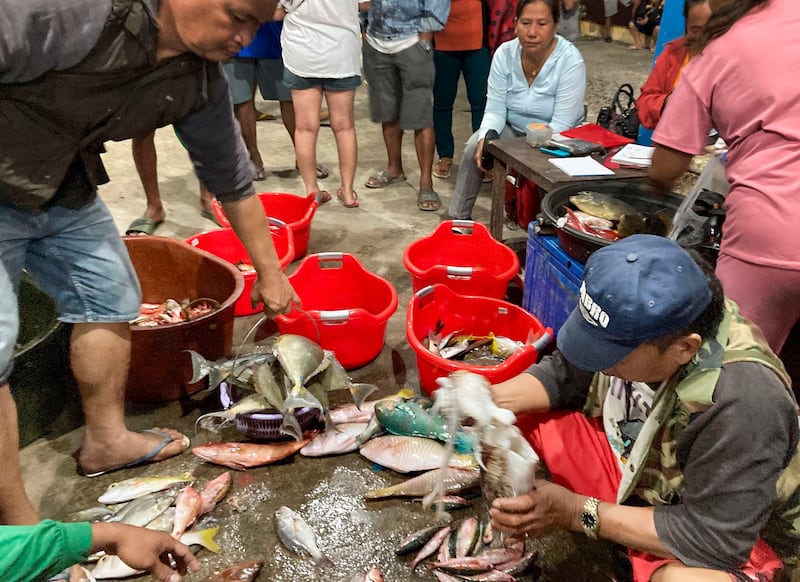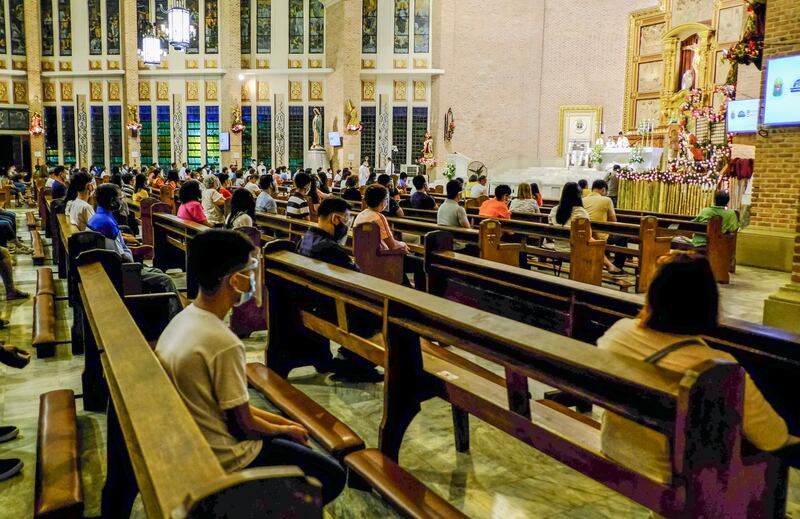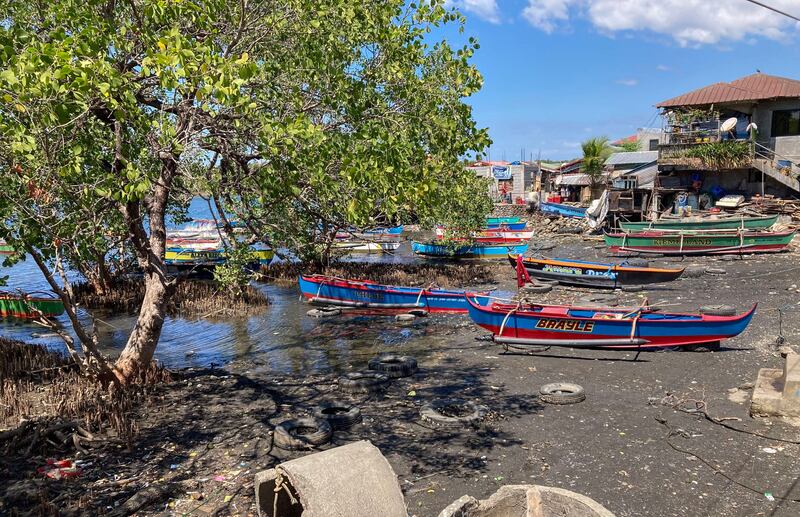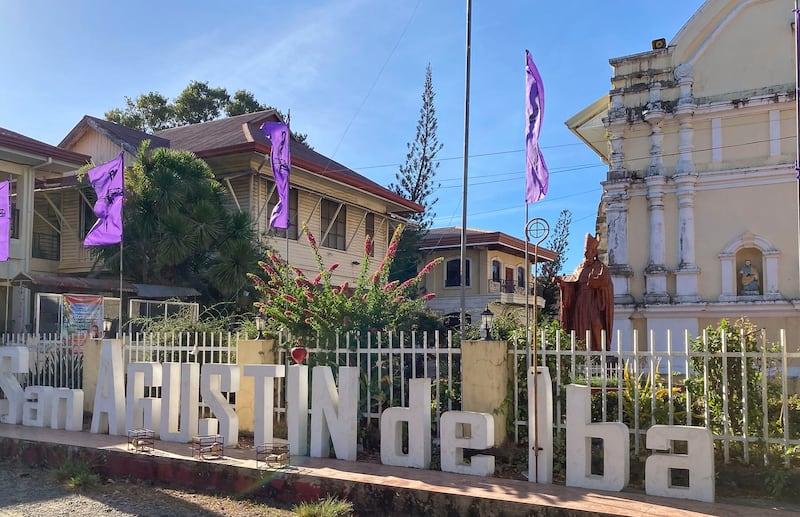The bishops are nothing if not blunt.
China's incursions in the South China Sea have "wrought havoc on the lives of our fisherfolk" in the Philippines, six Filipino Church leaders said in a rare and surprisingly combative pastoral exhortation issued last month.
The government’s response to the territorial trespasses, meanwhile, amounts to a “policy of appeasing the Chinese aggressors.”
“We seek peace, and it cannot be a moral option to wage war,” the bishops said. But the statement also offers a case for defending the Philippines' territorial integrity in the longstanding maritime dispute.
If diplomatic efforts falter “then it is permissible, morally necessary even, to have recourse to the friendship of allies who can help us defend what is ours!”

The 519-word statement doesn’t name its potential allies, but the United States and the Philippines signed a Mutual Defense Treaty in 1951 that calls on both nations to support each other if one of them is attacked by a third party.
The letter was so blunt that Justin Baquisal, a Philippine security analyst, said he had to read it twice.
"This is the first time that they've spoken with this tone," Baquisal said. "The usual tactic before is they would issue an oratio imperata, which is sort of a like a call for prayer. But this time, this is very explicit. This is a political statement. It is very much directed at the government. It is directed at China."
A smaller catch
It isn't clear how the statement will affect the dispute over the South China Sea, which in recent weeks has grown even more tense. In a country where more than 80% of the population considers themselves Catholic, the church carries considerable political weight.
At the least, the statement gives political cover to President Ferdinand Marcos Jr., who has spoken more forcefully against China’s actions than his predecessor, Rodrigo Duterte.
“The livelihood of our people depends on what we have on the seaside,” said Bishop Bartolome Santos, Jr., who leads the diocese in Iba in the western Philippine province of Zambales and was one of the six who signed the letter.
“We need to be proactive and stand beside our people so they can have some hope. We need to give them energy and encouragement … to not give up and stand our ground.”
Liu Pengyu, a spokesman for the Chinese Embassy in Washington, said China has “indisputable sovereignty” over the area and that it was “completely legitimate and legal” for Chinese ships to operate there.

But the bishops said that fishermen in Zambales have long relied on the Scarborough Shoal, an atoll 124 nautical miles, or 230 kilometers, west from the coastline of Luzon, the largest island in northern Philippines.
Called Bajo de Masinloc by the locals, the shoal was where they fished for large grouper and bluefin tuna.
At the Masinloc market these days it’s mostly just anchovies, mackerels and small tuna for sale. Filipino fishermen from the area told RFA that their catch has been cut by as much as two thirds since the Chinese coast guard started trying to block access to the area in 2012.
Tolomeo Farones said he was forced to quit altogether.
“The boat owner sold our boat because we couldn’t go to sea thanks to China’s harassment, and it would just be rotten lying around,” he said in an interview.
Farones now makes a living as a janitor at a local school.

Another flashpoint
In their exhortation, the six bishops said Filipino fishermen “have to venture far into the open sea, risking their lives to make a catch and then still face the threat of being bullied by Chinese fishing and naval vessels.”
In 2016, the Philippine government brought China to a tribunal under the 1982 United Nations Convention on Law of the Sea.
The tribunal ruled that almost all Chinese claims in the South China Sea are illegitimate, but Manila did little to stake its claim.
“It has already been decided by international law that it belongs to us, we should not allow China to take over,” said Bishop Broderick Pabillo, an outspoken priest serving in northern Palawan who also signed the statement.
“We are calling on the government to be more firm in their stance to protect our territorial waters and our sovereignty which are being taken over by China.”
Liu, the Chinese Embassy spokesman, said that China “does not accept or recognize” the tribunal’s ruling.

Pabillo’s congregants fish the Second Thomas Shoal off the coast of Palawan, some 500 miles south of Masinloc.
Chinese and Philippine coast guard vessels have been confronting each other in recent months near where the Philippines deliberately grounded a World War II-era ship to serve as a military outpost and mark its territorial claims.
“I don’t know what China will do, but I think we’re doing something, making China realize that we will not take this sitting down,” Pabillo said.
Analyst Baquisal said that the statement from the bishops represents an escalation of rhetoric that could put further pressure on the government to confront China.
Manila has set aside a budget to construct a facility for the troops stationed on the warship this year.
“China already said it won’t allow such a facility to be constructed. If that event happens then I expect the Catholic Church will play an active role in denouncing China’s blockade in that area,” Baquisal said.

A history of activism
The Catholic Church has been entangled in Philippine politics since Spanish explorers set foot in the country in the early 1500s.
More than 90 million Filipinos, or 81% of the country’s population, call themselves Catholics, giving the Church outsized political influence. The Catholic Church was, in fact, the most prominent voice of dissent against former President Duterte’s war on drugs, which killed thousands. Many priests received death threats for their activism, but public support for the anti-drug campaign fell.
In 1986, religious groups led by Cardinal Jaime Sin, the archbishop of Manila, played a prominent role in the so-called People Power Revolution. The protests eventually led Marcos’ father, President Ferdinand Marcos, to flee to exile after years of ruling the country as a dictator.
“Of course the Catholic Church is not an armed organization, but we need to be proactive in one way or another,” Bishop Santos told RFA.
“We have to stand beside our people. We also have to give them hope and ... to give them at least the energy and encouragement, not just to give up but still we have to stand our ground."
Edited by Jim Snyder, Abby Seiff and Imran Vittachi.
